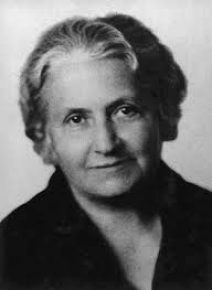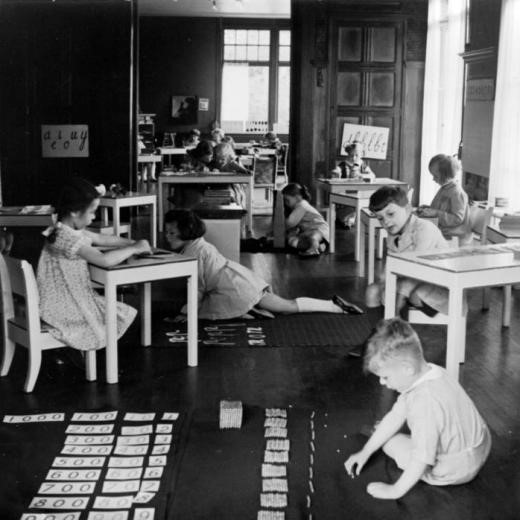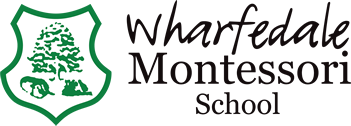The Montessori philosophy and practice derives from the work of Maria Montessori, and her approach to education in Italy in the early 20th century.
In the Montessori view, the drive to become independent propels human development. Montessori education aims to provide children and young people, from birth to maturity, with learning environments designed to support the development of social, intellectual and ethical independence. For this reason, Montessori education is often described as ‘education for life’. The foundation principle of the Montessori approach is that children learn best when they learn through their own freely chosen activity. Evidence gathered in Montessori schools throughout the world over the last century confirms that children who have the opportunity to learn in this way become self-confident, self-reliant and self-disciplined, with a life-long love of learning and the desire and capacity to contribute to the wellbeing of their social group. They also develop the ability to move with coordination and precision, and the ability to concentrate and to complete tasks independently with both perseverance and creativity.
Montessori educators believe that all children in the community benefit from an inclusive approach. The curriculum is child-centered and customised in ways that create an individual learning journey. The starting point for learning is always what individual children know and can do. Learning is then broken down into clear, incremental steps, scaffolded by the Montessori materials and exercises. In each content area individual children are given as much opportunity as they need for repetition, consolidation, application and extension. In this way children become confident learners, willing to take on intellectual challenges, to solve problems and to persevere until they have mastered elements of the curriculum.
Our high staff to child ratios allows the teachers time to get to know your child through observation, to model individual presentations and provide them with the freedom to repeat their chosen activities reaching mastery ahead of progression. At each stage of development the physical, emotional, psychological, social and intellectual needs of the children govern the preparation of the school environment.
This preparation is complimented with care and attention to detail. We aim for the environment to be beautiful and inviting to the child, encouraging maximum independent choice and function. The children help to maintain the order and beauty of the environment by helping to tidy and clean it, and are shown how to finish and put their work in its special place ready for the next child. This builds self-discipline and respect for the working environment and the needs of others. Montessori environments are prepared to encourage children to be responsible and caring citizens able to be a part of a community of peers in preparation for becoming active and contributing members of the wider community.
The ‘essential condition’ for child development is, in the words of Montessori (1973/1948: 24), ‘freedom to act in a prepared environment where the child can be intelligently active’. Children’s self-chosen activity is the catalyst for learning in a Montessori environment; in other words, learning is a function of children’s active choices motivated by interest.
Tana Ramsey Discovering Montessori
https://www.youtube.com/watch?v=hThVZBT5PGA
The Montessori notebook talks about how we prepare children for the real world. They offer courses on bringing Montessori into your parenting and home.
https://www.themontessorinotebook.com/does-montessori-prepare-children-for-the-real-world/
Read about Maria Montessori’s life and work here:
https://montessori-ami.org/resource-library/facts/biography-maria-montessori
Listen to conversations on Montessori education here:
https://45conversations.com/history-of-montessori-method/
https://www.go-montessori.com/montessori-article-25-Education-for-Peace.html


